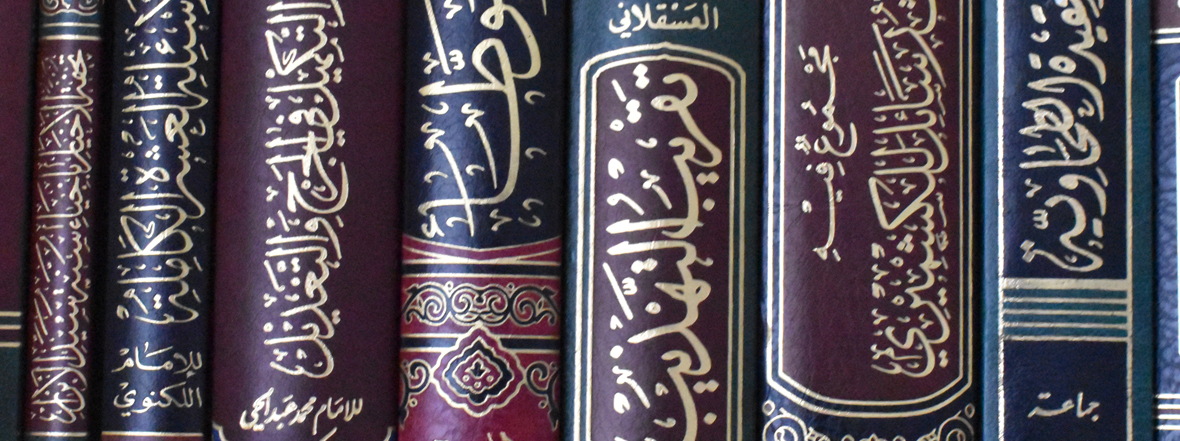I remember my history teacher often telling us, ‘Remember! There are two sides to every story. Don’t judge based on just reading one side.’
How so very true that statement is! Not only when studying history do we fail to remember this fact; we also struggle to apply it into our day to day affairs. We are often quick to jump to assumptions based on listening to the account of just one concerned party. More often than not, this results in arriving at a biased conclusion.
Jumping to conclusions prematurely happens more so when the news reaches us through someone we deem to be on ‘our’ side, or a person who holds some standing in society. It can also happen when the news is something negative against someone we don’t particularly like, or in favour of someone we like. While this could be argued as being a natural human response, it’s not exactly what Islam teaches us. Allah says:
يَاأَيُّهَا الَّذِينَ آمَنُوا كُونُوا قَوَّامِينَ بِالْقِسْطِ شُهَدَاءَ لِلَّهِ وَلَوْ عَلَى أَنْفُسِكُمْ أَوِ الْوَالِدَيْنِ وَالْأَقْرَبِينَ إِنْ يَكُنْ غَنِيًّا أَوْ فَقِيرًا فَاللَّهُ أَوْلَى بِهِمَا فَلَا تَتَّبِعُوا الْهَوَى أَنْ تَعْدِلُوا وَإِنْ تَلْوُوا أَوْ تُعْرِضُوا فَإِنَّ اللَّهَ كَانَ بِمَا تَعْمَلُونَ خَبِيرًا
‘O you who have believed, be persistently standing firm in justice, witnesses for Allah, even if it be against yourselves or parents and relatives. Whether one is rich or poor, Allah is worthier of both. So follow not [personal] inclination, lest you not be just. And if you distort [your testimony] or refuse [to give it], then indeed Allah is ever, with what you do, Acquainted.’ (4:135)
The principle of being privy to both sides before arriving at a judgement is found in the aḥādīth of the Prophet ﷺ. Once, while advising ‘Alī رضي الله عنه, the Prophet ﷺ said, “When two people come to you asking you to judge between them, do not rule in favour of one until you hear the account of the other, for you will soon come to know of how to pass the judgement.” (At-Tirmidhī)[1]
Once you have heard the accounts of both individuals, you will soon realise the full nature of the incident; who is right and who is wrong, and what the circumstances and possible justifications are. Until then, do not pass judgement. Although this ḥadīth addresses a principle to be upheld by the judge in a court, there is no reason why we shouldn’t apply it in our day-to-day lives too.
That being said, the only exception to hearing out both versions of any incident are the stories and accounts mentioned by Allāh in the Qur’ān, and by the Prophet ﷺ in his aḥādīth, for we believe that both can never lie.
Allāh mentions in the Qur’ān:
وَمَنْ أَصْدَقُ مِنَ اللَّهِ حَدِيثًا
‘…Who is more truthful in his word than Allāh?’ (4:87)
He also says:
وَمَنْ أَصْدَقُ مِنَ اللَّهِ قِيلًا
‘…and who is more truthful than Allāh in his word?’ (4:122)
The Prophet ﷺ also narrated to have said, “Indeed, I do not say but the truth.” (At-Tirmidhī)[2]
[1] حَدَّثَنَا هَنَّادٌ قَالَ: حَدَّثَنَا حُسَيْنٌ الجُعْفِيُّ، عَنْ زَائِدَةَ، عَنْ سِمَاكِ بْنِ حَرْبٍ، عَنْ حَنَشٍ، عَنْ عَلِيٍّ قَالَ: قَالَ لِي رَسُولُ اللَّهِ صَلَّى اللَّهُ عَلَيْهِ وَسَلَّمَ: «إِذَا تَقَاضَى إِلَيْكَ رَجُلَانِ، فَلَا تَقْضِ لِلأَوَّلِ حَتَّى تَسْمَعَ كَلَامَ الآخَرِ، فَسَوْفَ تَدْرِي كَيْفَ تَقْضِي»، قَالَ عَلِيٌّ: «فَمَا زِلْتُ قَاضِيًا بَعْدُ»: رواه الترمذي وقال: هَذَا حَدِيثٌ حَسَنٌ
[2] حَدَّثَنَا عَبَّاسُ بْنُ مُحَمَّدٍ الدُّورِيُّ البَغْدَادِيُّ قَالَ: حَدَّثَنَا عَلِيُّ بْنُ الحَسَنِ قَالَ: أَخْبَرَنَا عَبْدُ اللَّهِ بْنُ المُبَارَكِ، عَنْ أُسَامَةَ بْنِ زَيْدٍ، عَنْ سَعِيدٍ المَقْبُرِيِّ، عَنْ أَبِي هُرَيْرَةَ قَالَ: قَالُوا: يَا رَسُولَ اللَّهِ، إِنَّكَ تُدَاعِبُنَا، قَالَ: «إِنِّي لَا أَقُولُ إِلَّا حَقًّا»: رواه الترمذي وقال: هَذَا حَدِيثٌ حَسَنٌ
Written by Mawlana Anees Bhayat (via Knowledge through the Pen)






